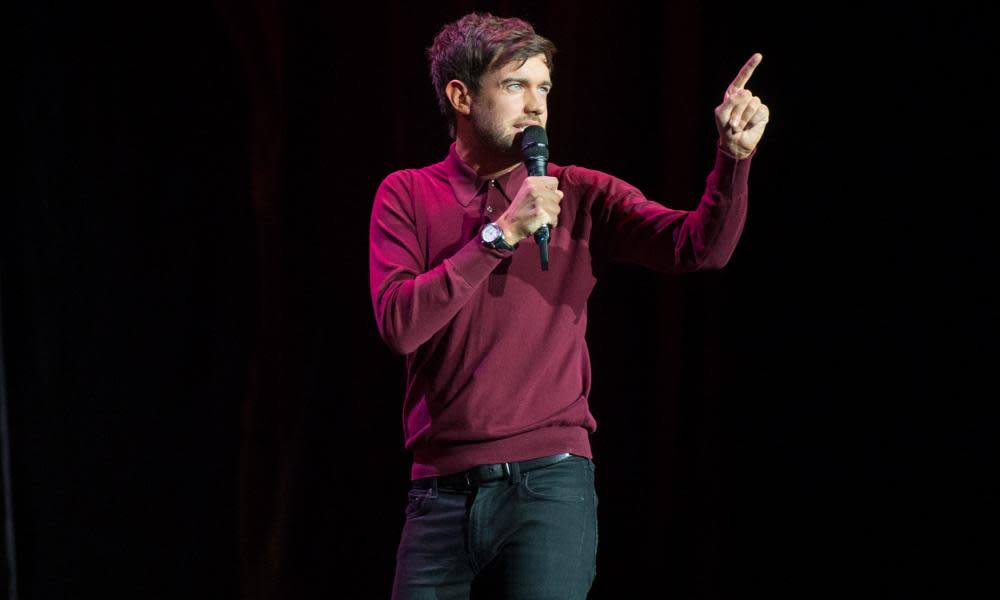Right on: does standup comedy have a leftwing bias?

“Three-quarters of BBC comedians are liberals,” scream the headlines; or “New BBC boss targets ‘leftwing’ comedy shows.” In the ongoing culture wars, a battle is being waged over comedy. It is, they say, dominated by lefties/snowflakes/the metropolitan liberal elite (delete according to taste). Rightwing acts are being cruelly excluded, columnists argue – when they can make themselves heard above trans-bashing Ricky Gervais’s standup specials and yet another series starring toff comic Jack Whitehall.
Related: The Guide: Staying In – sign up for our home entertainment tips
Let us pick apart this claim. Is there truth in it? It may be that comedy, like the arts in general, skews leftwards. The arts attract misfits, malcontents and people happy to work for a pittance – and the latter category, at least, excludes most enthusiasts for the Conservative party. Comedy – right down to the architecture of many of its jokes – is about subverting the status quo, and pulling down the pants of the powerful. That will always (but especially in periods of rightwing rule) attract more lefties than Tories. Let’s face it: in order to be leftwing in Britain today, a sense of humour isn’t just professionally advantageous, it’s a survival mechanism.
But you could equally argue that standup is the apotheosis of Thatcherite individualism, or that (in the words of rightwing comic Simon Evans) “the vast majority of comedians are apolitical, borderline-sociopathic narcissists”. It’s certainly a stretch to claim that lefties dominate the airwaves. You need only look at Geoff Norcott, who was a jobbing comic going nowhere until he had the bright idea to lean into rightwingedness. Since then, he’s hardly been off the TV.
Others are scrambling to follow in his wake. Identifying as rightwing is quite the trend in live comedy these days, and has spawned some acts only a (rightwing) mother could love, including David Cameron’s former aide Sarah Southern. On the bigger stages, conservative themes proliferate. The ubiquitous Whitehall – the UK’s biggest touring act of 2020, at whom TV chiefs throw show after show – has an act that celebrates nepotism and hobnobbing with the royal family. The comedy of omnipresent Jimmy Carr is not exactly on the side of the underdog. Netflix’s biggest acts – Dave Chappelle, Bill Burr, Gervais – are known for their anti-woke posturing.
Most of TV’s “political” comedy is smugly bipartisan: back-slapping gags exchanged by male-dominated panels under the banner of “they’re all as bad as each other”. Jeremy Corbyn was a punchbag for these programmes. The BBC’s flagship format, Have I Got News for You, can so little be described as leftwing that, famously, it laundered for public consumption the blithering Tory windbag who now passes for prime minister.
Left versus right is not the most revealing lens through which to consider comedy, whose best practitioners’ work leaves those labels standing. Few comics admit being rightwing: it’s not just voters who can be “shy Tories”. But then few are explicitly leftwing, either – and among those who are, Keir Starmer cops as much flak (see Frankie Boyle’s recent review of 2020) as anyone on the Tory benches. If comedy does skew leftwards, Netflix, TV and the touring circuit are pretty adept at concealing it.


